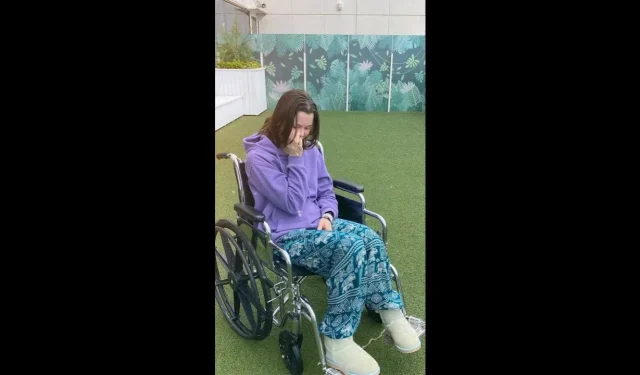In recent years, the rise of social media platforms, particularly TikTok, has had profound implications on youth health, spotlighting a troubling trend: the surge in anorexia driven by digital content. A tragic case is that of Katya, whose attempt to adopt a healthier lifestyle spiraled into a near-fatal struggle with anorexia nervosa at only 13 years of age.
The Escalation of Anorexia Among Youths
The onset of the COVID-19 pandemic prompted many young individuals to reassess their health, with social media often driving new fitness pursuits. However, this quest for wellness has taken a dark turn, as young users become heavily influenced by dieting trends shared on TikTok, leading to an alarming increase in eating disorders, particularly anorexia nervosa. The digital landscape can trivialize critical health issues, transforming normal eating habits into extreme dietary restrictions.
Katya’s Story: From Health Goals to Hospitalization
Katya’s journey began innocently, driven by the desire to be healthier. However, within three months, Katya’s pursuit led to severe physical consequences, prompting hospitalization due to malnutrition. The accessibility of fitness and dieting trends on platforms like TikTok can mislead teens into adopting harmful practices without understanding the risks involved. Katya’s experience reflects a wider epidemic of misinformation about health that is easily disseminated online.
The Role of Social Media in Shaping Body Image
Social media platforms wield tremendous influence on body image perceptions among adolescents. The prevalence of curated lifestyles and filtered realities often skews young users’ understandings of health and body ideals. The “thinspiration” trends, which have been proliferated through TikTok and other platforms, glamorize severe weight loss and unhealthy eating patterns. This can lead to increased pressure on young people to conform to unrealistic body standards, paving the way for eating disorders.
Consequences for Mental and Physical Health
The repercussions of this trend are profound. Adolescents suffering from eating disorders such as anorexia face both immediate health risks and long-term psychological issues. Anorexia is not just a diet gone wrong; it can lead to significant medical complications, including heart problems, organ failure, and in extreme cases, death. Moreover, these individuals often require long-term psychological intervention, which adds a societal burden due to increasing healthcare needs.
Potential Solutions and Societal Responsibility
Addressing this issue requires a multi-faceted approach. Parents, educators, and healthcare professionals need to engage in open dialogues about body image and the influence of social media. Education on recognizing harmful content and the importance of a balanced lifestyle can empower teens to make healthier decisions. Similarly, social media companies have a responsibility to implement regulations that limit the spread of harmful content related to dieting and body image.
The Future: Combating the Rise of Anorexia
As the landscape of health and fitness discussions continues to evolve within social media, the responsibility lies with both individuals and platforms to foster a healthier online environment. Ensuring that young users have the appropriate support and resources is crucial in combating the rising incidence of anorexia and promoting overall wellness. Awareness campaigns that target both teens and the influence of social media might play a vital role in reversing this troubling trend.


